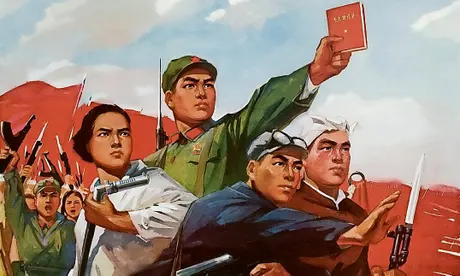As Chinese scribes face jail and torment, free speech is a misnomer in the communist nation
Human rights abuse in Tibet and Xinjiang has been making headlines for several years now with campaigners protesting the Chinese actions in the regions.
A recent report once again highlighted the brutalities and hardships faced by journalists, writers or commentators in China.
The recent publication of 2024 World Press Freedom Index by Paris-based Reporters Without Borders (RSF) on May 3 showcased the deteriorating state of free journalism in the country and pointed towards the stiff action taken by authorities against them to counter free speech.
Ranked 172nd in the list, RSF said in its report: “In China (172nd), in addition to detaining more journalists than any other country in the world, the government continues to exercise strict control over information channels, implementing censorship and surveillance policies to regulate online content and restrict the spread of information deemed to be sensitive or contrary to the party line.”
China managed to rank just above North Korea (177) and Afghanistan (178) in the list.
The Epoch Times quoted: “Compared with last year’s ranking of 179th—second last place—China’s ranking this year has increased. However, the report indicated that the only reason for this slight upward movement in the rankings is the deterioration of situations in other countries and regions, such as in the Taliban controlled Afghanistan, rather than any improvement in China.”
Hong Kong, the region which is controlled by the Chinese regime, ranked 135th in the list, much ahead of China.
RSF said: “Once a bastion of press freedom, the Hong Kong Special Administrative Region of the People’s Republic of China has suffered an unprecedented series of setbacks since 2020, when Beijing adopted a National Security Law aimed at silencing independent voices.”
The ranking is slightly higher than its 140th rank achieved in the list published in 2023.
New York’s PEN America released its Freedom to Write Index 2023 earlier this year which also painted a not-so-hopeful situation for journalists in China and said: “Collectively, China and Iran—the top two jailers of writers during 2023—accounted for almost half (24 of the 51) of the women writers in the 2023 Index.”
“China and Iran are by far the most inhospitable places in the world for writers exercising their free expression. The two countries jail the most writers, 107 and 49 respectively, or a combined 46 percent of the total, and also occupy the top two positions in PEN America’s Writers at Risk Database,” the report said.
In 2023, China jumped above 100 cases, jailing 6 writers during the year for a total of 107. Of the total number of writers, 9 are female.
Of the 107 cases, 50 are online commentators—writers who regularly use social media platforms to post their opinion and commentary on a range of political, economic, and social topics, PEN America said.
“Many of the online commentators were targeted for writing and posting about the government’s controversial COVID-19 policies, such as Sun Qing, Xiaolong Ji, and Yu Qian. Other online commentators criticized President Xi Jinping or the Chinese Communist Party, discussed democracy, or spoke out about a range of human rights issues.
“Online spaces have also been used as platforms to disseminate more traditional forms of writing, like essays and open letters; one example of this is Yang Shaozheng’s essay about the economic costs of China’s funding of party organizations,” the New York-based body said.
According to Pen America, Uyghur writers in Xinjiang continue to face punishment for contributing to ‘rich literary and poetic traditions’.
“They are often arrested and imprisoned on vague charges that allege general ‘separatism’ from the Chinese government.
Gulnisa Imin (Gulhan), a Uyghur literature teacher and poet, was detained on separatism charges for writing about preserving and promoting the Uyghur language and culture as part of her poetry project, ‘One Thousand and One Nights,’ in which she wrote one poem a night for 1,001 nights,” PEN America said highlighting the depth of troubles faced by writers.
Canada-based journalist and writer Sheng Xue told The Epoch Times on May 4 that the numbers published by these international organizations are just a few leaked out to the outside world under the CCP’s tight control of information.
“No one knows how many journalists in China have been persecuted to death, how many have been secretly arrested, sentenced, persecuted, and tortured,“ Sheng said.
“The entire system of the CCP is a state-terrorist regime, which means not only the central committee of the CCP is an autocratic and authoritarian system, [but] all levels of its power operate the same as a dictatorial and tyrannical regime. Therefore, it is impossible for the outside world to know many incidents. It is difficult to collect statistics. To be honest, even [CCP leader] Xi Jinping does not know.”
Sheng said China remains one of the nations where press freedom and freedom of speech remains severely persecuted in the world.
Lai Jianping, a Chinese human rights lawyer who currently resides in the United States, told the publication that press freedom and freedom of speech in China, including Hong Kong, are actually declining and deteriorating.
“The reason why the CCP continues to tighten its control over speech is mainly because it is facing increasingly profound and unprecedented political, social, and economic crises.”
“Its ruling status is threatened, and it wants to maintain one-party dictatorship and one-man dictatorship. Therefore, it continues to strengthen its control over all aspects of social life. So [suppressing] freedom of speech and freedom of the press are top priorities for the CCP and are the most important aspects of social life that it needs to control,” the lawyer said.
ENDS













